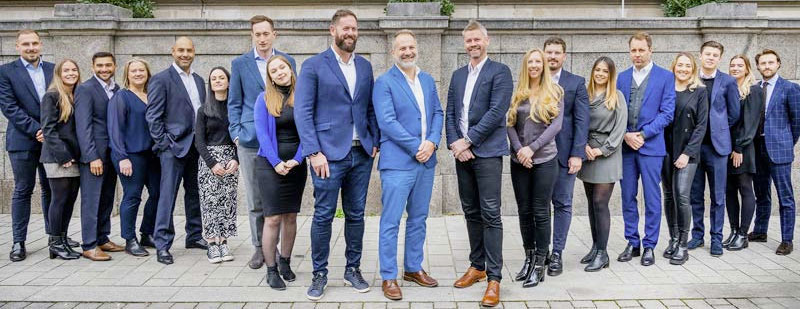Top five tips to secure a large mortgage loan
Mortgage lenders are offering their most competitively priced rates on the back of the ongoing price war according to figures from the Bank of England.
If you are looking to secure a mortgage it should be possible to access some fantastically priced rates, providing you have a good credit score and you meet the lenders acceptance criteria.
A selection of high street banks and building societies are offering large mortgage loans and they are also giving the private banks some real competition.
Here are our top five tips to obtain a leading mortgage:
1. Ensure you are getting the best rate
Competition to attract wealthier borrowers has increased significantly and lenders are actively seeking to assist high-net-worth clients.
With £1m plus mortgages available well below 2% and large loan five-year fixes around 3%, it is worth making sure you are getting the lowest rate available to you.
In order to access these mortgages your finances will need to be well managed and you will need to meet some strict affordability calculations.
2. You must be prepared to prove your income
The mortgage market is highly regulated and banks and building societies will need to know how much you earn before they will provide you with a mortgage.
If your income is complex or you receive income from a number of sources, it is advisable to get bank statements, accounts and payslips together.
Banks will also want to know about your assets and regular expenditure.
3. Don’t pay a higher arrangement fee than necessary
Mortgage lenders charge different arrangement fees and some are much higher than others.
Private banks typically charge between 0.5% and 1% of the loan amount to setup a mortgage, although high-street lenders arrangement fees are often much more competitive.
High-street banks and building societies typically charge arrangement fees between £0 and £4,999.
4. Consider the private banks
Trinity Financial use private banks to arrange mortgages for wealthier clients looking for a mortgage to be structured to suit their needs.
They are often able to help clients if their income is generated through a trust or an investment portfolio.
Most private banks typically require up to 50% of the mortgage to be transferred to them in assets for them to manage. But this isn’t always necessary.
There is a selection of banks providing ‘dry lending’ where cash, stocks or shares do not need to be transferred as part of the deal.
5. Make sure your mortgage affordability stacks up
Mortgage lenders use affordably calculators to work out how much they will lend.
As part of the mortgage application process lenders will reduce the amount you can borrow when they assess your income and expenditure.
Credit card and loan repayments, children and child care costs, and many other monthly outgoings will reduce the amount you can borrow.
This makes it even more important to approach a lender with attractive acceptance criteria.
Aaron Strutt, product manager at Trinity Financial, says: “The lenders use data from the Office for National Statistics to ensure applicants are providing accurate information.
“Trinity has access to one bank offering to lend up to five times both single and joint incomes - although many others are not so generous.”
If you would like help to secure a large mortgage loan, call Trinity on 020 7016 0790.













